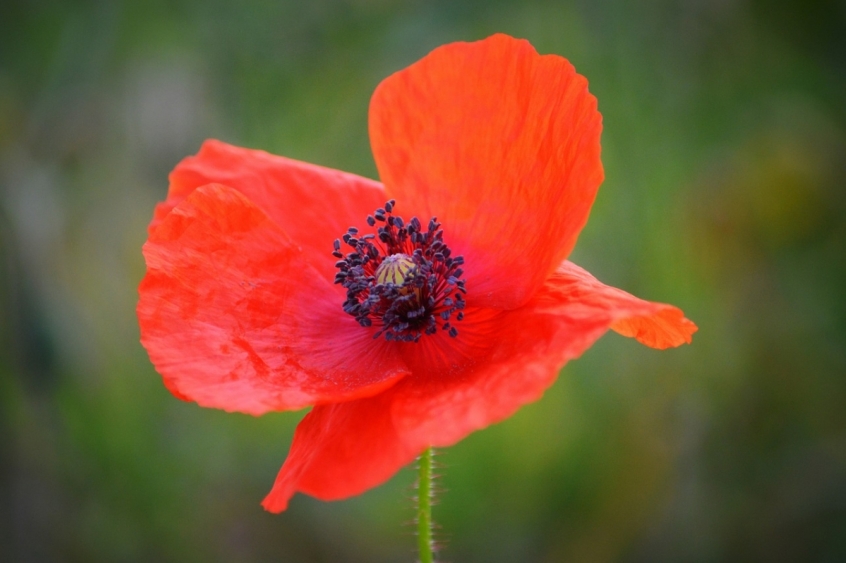
A few years ago the wife of a friend of a friend went out collecting for the British Legion's annual poppy appeal. As it happens, she was German, and her husband's baffled reaction was, "You can't do that, you're the enemy!"
At one level it's just funny. But it also says something about reconciliation, and about the capacity of the poppy to symbolise something other than victory and triumphalism – the usual accusation trotted out at this time of year.
Poppies are fundamentally sad. We wear them because they grew in their millions in France and Flanders, where the ground broken up by shellfire created ideal growing conditions. Their roots, as the poet Isaac Rosenberg said, were in men's veins. And most of the conflicts that have disfigured the face of the world since then, up to and including the rise of Islamic State, can be traced back to the catastrophic peace settlement that ended the Great War. So while the official reason for wearing them is to remember our own dead, we are also acknowledging the terrible cost of human failure in every generation and every conflict. For Christians, this is a poignancy sharpened by our consciousness of the power of sin, and the knowledge that we haven't always sought peace as we ought.
There was a time not so long ago, in the 1970s, that the poppy was floating out of use. Remembrance Sunday was observed in churches, rather unenthusiastically, but Armistice Day – November 11 – hardly at all. Offices would certainly not have fallen silent at 11 am.
What brought it back? The Falklands in 1982, reminding us that we had not done with war. Then the Gulf War in 1991, Bosnia and Sierra Leone, before the long nightmare of Afghanistan and Iraq. Our soldiers were dying again.
But alongside this there was the journalistic revolution created by the digital revolution: we can see war in real time, and the consequences of war. It isn't just pins on a map and tales of what our brave boys are up to. We see the civilian casualties, the shattered lives, the ruin of nations. And in the post-Diana age in which the stiff upper lip is no longer seen as exemplifying the best of British and we are all emoting all over the place, the poppy has come to matter again.
I have every sympathy with those who don't wear it at all – down with poppy fascism, I say. I have very little with those who wear white poppies, which it seems to me politicise the symbol through misunderstanding it.
I was surprised a few years ago, though, to find out how much it mattered to me. I had gone to Ypres on a whim, where the Menin Gate stands at the edge of the town, carved with the names of the 55,000 men who died there and whose bodies were never found. It is the spiritual home of the poppy. You can look up the bare slope beyond it to the village of Passchendaele. Each night the local fire brigade plays the Last Post to whoever is gathered under the arch. On a cold, grey and rainy April evening I had not expected any particular emotional charge, but I was left in bits.
But as always with symbols that move, the question is what you do with what they do to you. The risk is that it becomes entertainment. We rather like to feel sad, when it's about something that doesn't directly concern us; it assures us that we have feelings, and there's a sense we're being rather virtuous in having them: "See how much we care!"
But Jesus did not say, "Blessed are those who are sad about the dead." He said, "Blessed are the peacemakers": those are are active and committed in the cause of peace. And if we weep for the fallen without working as hard as we can for the living, we haven't really understood the poppy at all. It isn't just a memorial to the fallen: it's a call to arms for a different war entirely.
Follow Mark Woods on Twitter: @RevMarkWoods













